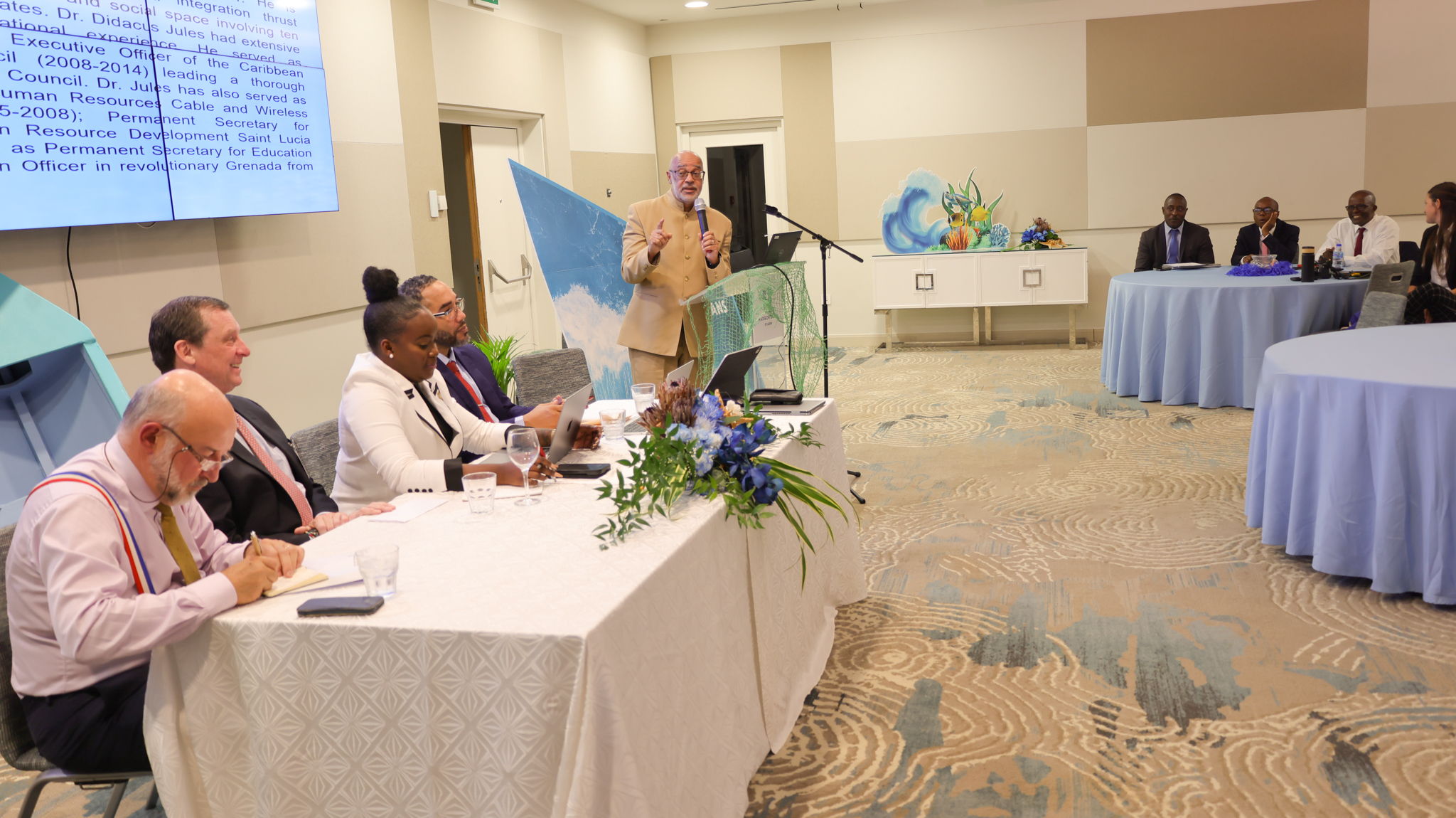The 4th OECS Blue Economy Roundtable raises the importance of Policy Coherence to boost the Blue Economy across the region
OECS Media Release
The 4th OECS Blue Economy Roundtable comprised high-level engagements and a series of auxiliary sessions designed to raise interest in and drive sustainable blue growth in the OECS region.
Under the theme, “Beyond Aspiration – The OECS Model Blue Economy Region” the event was held from October 15 to October 16. These annual discussions provide a deliberate platform for investors, policy makers and industry leaders to connect and share their own insights into the challenges and potential of the blue economy in the region. High-level engagements such as these ultimately lead to strategic collaborations.
Auxiliary sessions underlined opportunities to support waste and wastewater management in the OECS, promoted blue economy investments and provided opportunities for information sharing on the Caribbean Biodiversity Fund, the Global Biodiversity Framework, and national priorities.
Key highlights of the two-day event included the high-level Blue Economy Roundtable, the launch of a Regional MSME Matching Grants Programme and an exhibition showcasing the work of the OECS Commission and other partners on ocean related matters.
The Blue Economy Roundtable was moderated by Director General of the OECS, H.E. Dr. Didacus Jules. Speakers included, the Honourable Kerryne James, Grenada Minister for Climate Resilience, The Environment, and Renewable Energy; Honourable Daren Pinard, Commonwealth of Dominica Minister of State in the Ministry of Labour, Public Service Reform, Social Partnership, Entrepreneurship and Small Business Development; Dr. Jaime Cavelier, Vice president, International Conservation Caucus Foundation Group (ICCF); and French Ambassador to the Eastern Caribbean States, to Barbados and to the OECS, H.E. Francis Etienne.
Dr. Cavelier examined the importance of policy coherence to create a unified approach to blue economy growth and development.
“Why policy coherence?... Policy Coherence is necessary to ensure that the gains in Global Environmental Benefits are not undermined due to misaligned policies that reduce their permanence or result in investment in environmentally damaging behaviours”
Hon. Kerryne James, Grenada Minister for Climate Resilience, The Environment, and Renewable Energy delivered a presentation on cross cutting issues essential to advancing a sustainable blue economy with a focus on her country’s role and their experiences.
“Grenada is a part of a collective effort within the OECS to use its exclusive economic zone, which is 75 times our land area, to drive regional economic resilience. Grenada’s Blue Economy strategy is central to our national development. The Ocean plays a crucial role in our economy, food security and of course climate resilience. Now to unlock the full potential of our oceans policy coherence as you have heard before and regional collaboration are essential. We must also address key challenges like climate change, biodiversity loss and pollution that are particularly pronounced in small island developing states like ours.”
The launch of the Regional MSME Matching Grants Programme provides a landscape of financial opportunities to foster growth and development of enterprises in the OECS. The Programme is being implemented under the project, Unleashing the Blue Economy of the Caribbean (UBEC) which is being led by the OECS Environment Sustainability and the Economic Affairs and Regional Integration Divisions. The three participating countries of the UBEC are Saint Vincent and the Grenadines, Saint Lucia and Grenada.
Jacques Hinkson-Compton






